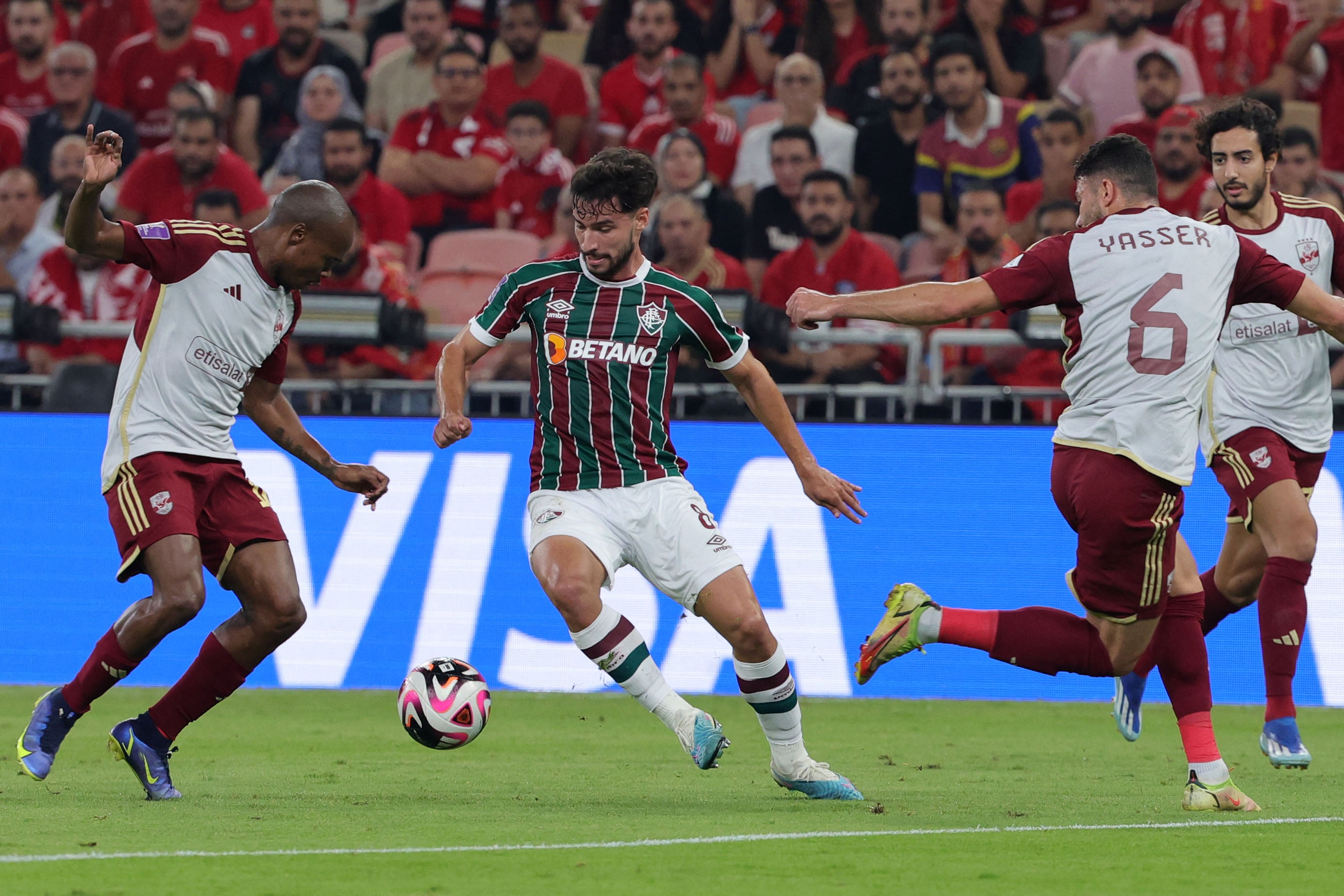Guardiola’s City, Diniz’s Fluminense and why this Club World Cup final really is worth watching
Fernando Diniz’s tactics are almost ‘anti-Pep’ in the way they reject fixed positions on the pitch and his meeting with Guardiola promises to be a fascinating clash of football ideologies
This is it, the Fifa Club World Cup final, where we find out the answer to the question we’ve all been wondering: who really are the best team in the world... the team currently fourth in the Premier League, or the team who just finished seventh in the Brazilian Serie A?
This, of course, is the slight flaw in the admirable idea of the Champions League winners taking on the Copa Libertadores champions, or whoever makes it to the final of the competition. Last year, Real Madrid played Al-Hilal in, supposedly, the biggest game in the world. In 2016, Madrid vied for global dominance against, erm, Kashima Antlers.
So perhaps these aren’t the best two teams around. Perhaps they are not very well matched, either, given Fluminense’s record signing cost £6m and five of their regular starters are 33 or older. City should win with ease.
But what the game does throw up is a fascinating tactical clash between the doyen of modern European football, Pep Guardiola, and the architect of a tactical revolution growing in Brazil, Fernando Diniz.
Brazilian teams of the Fifties, Seventies and Eighties evolved different forms of the same jogo bonito style, one filled with creativity and joy. You can see it in that famous Carlos Alberto goal of the 1970 World Cup final – the slow, rhythmic build-up, the short passes, the lack of fixed positions, before the sudden rise in tempo to overwhelm the opponent.
This football was seen as part of Brazilian culture, and a reflection of it. But slowly it has been eroded, with the onset of what is known as “positional” play: the idea that the best – even the only – way to succeed in modern football is by following rigid structures and set patterns with players in fixed positions. It is football inherited from the school of Cruyff, of Van Gaal and others, and mastered most notably by Guardiola himself.
It is everywhere. Guardiola’s assistant, Juan Manuel Lillo, denounced the homogenous state of football tactics in an article last year. “Everything is globalised now,” Lillo wrote. “At club level, if you go to a training session in Norway and one in South Africa, they’ll be the same … And I say this as a big exponent of a lot of these methods and ways of thinking! I’m like a regretful father.”

So in many ways, Diniz is an antidote to the ubiquitous spread of Pepball. His Fluminense players rarely use fixed positions but rely on the ball as a reference point to move and support their teammate in possession. They cluster around the ball-carrier like a sacred artefact to be protected at all costs. Who is right-back and who is left-wing barely matters. Sometimes, almost the entire team can be found on the same side of the pitch, and it is fascinating to watch.
“Fluminense is a Brazilian school,” said Guardiola this week. “They embodied Brazilian football for a long time. I always remember that my father told me that Brazilians play very slowly, around the ball all together, short passes and suddenly they start quickly, and it seems that the idea is to do that again.”
Diniz has captured the hearts of those football fans who lament the lack of ingenuity and spontaneity in the modern game. His play is admired the world over: Malmo recently won the Swedish title playing in a style never seen before in the Allsvenskan, a style directly inspired by Diniz, as their manager Henrik Rydstrom told The Independent recently.
It is too soon to suggest there is a tactical revolution sweeping the globe, or that the pillars of Guardiola’s positional play are crumbling. Far from it. But there is certainly a jolt of excitement in parts of the coaching community about what Diniz is doing, and word is spreading. The Club World Cup final can be a slightly absurd affair, but this time it is a worthy stage for a meeting of football ideals.
Join our commenting forum
Join thought-provoking conversations, follow other Independent readers and see their replies
Comments
Bookmark popover
Removed from bookmarks